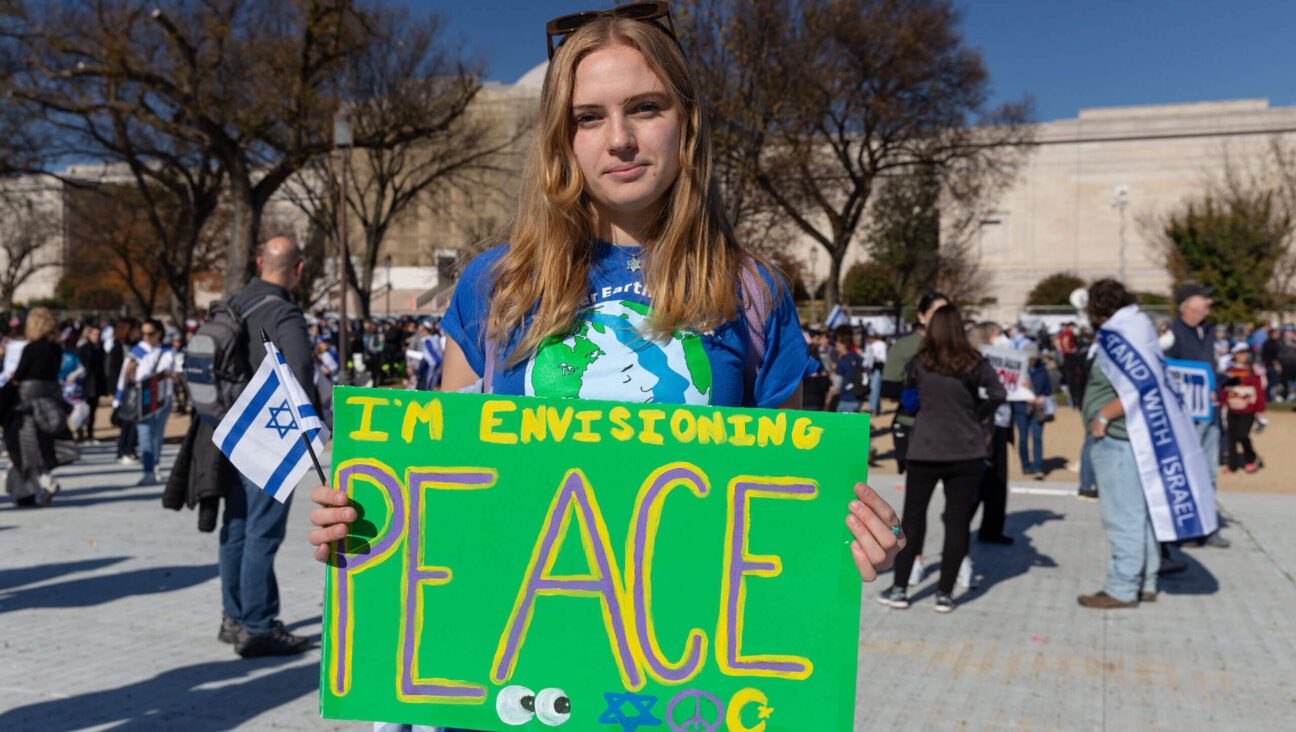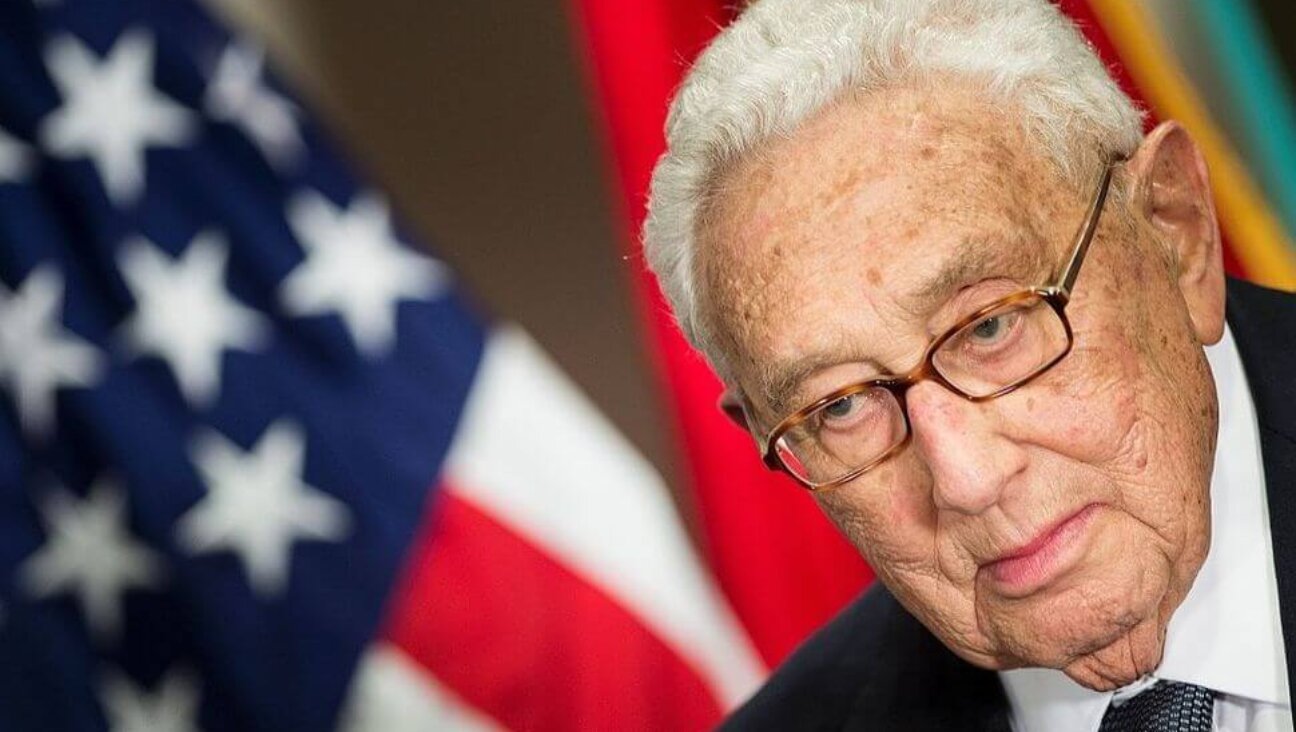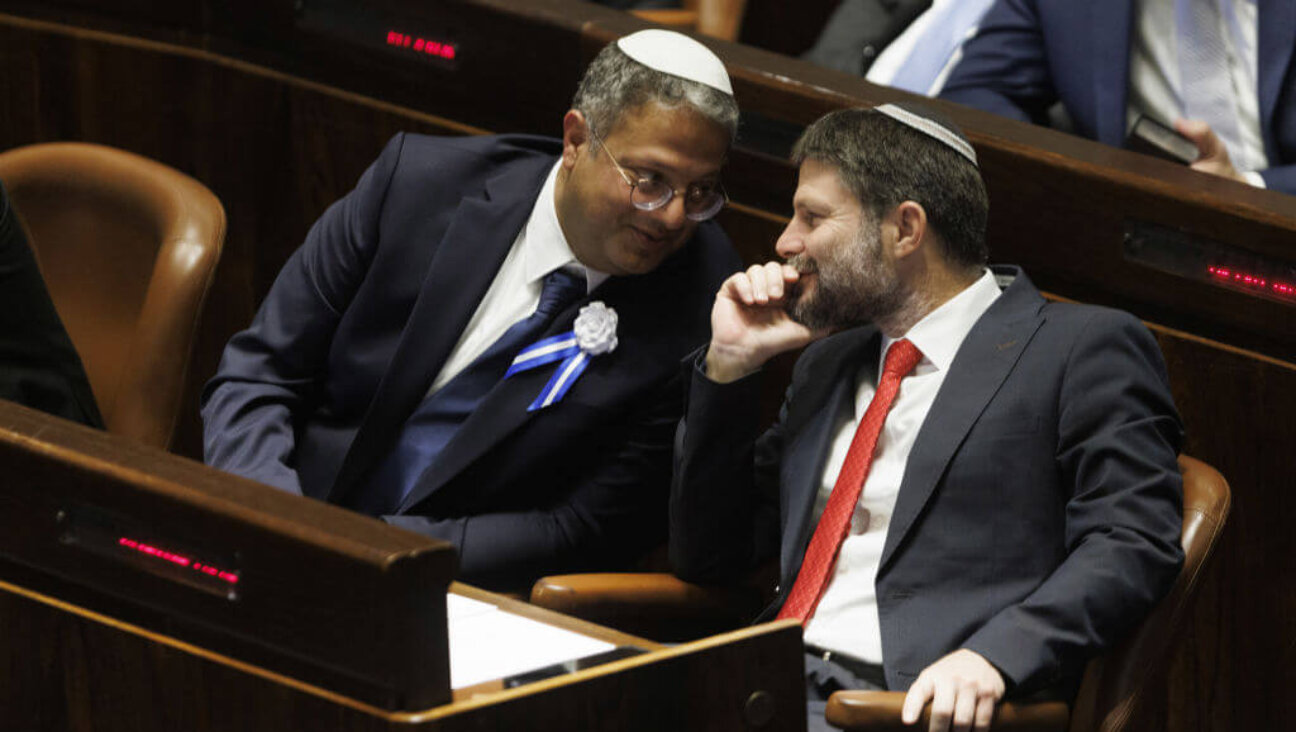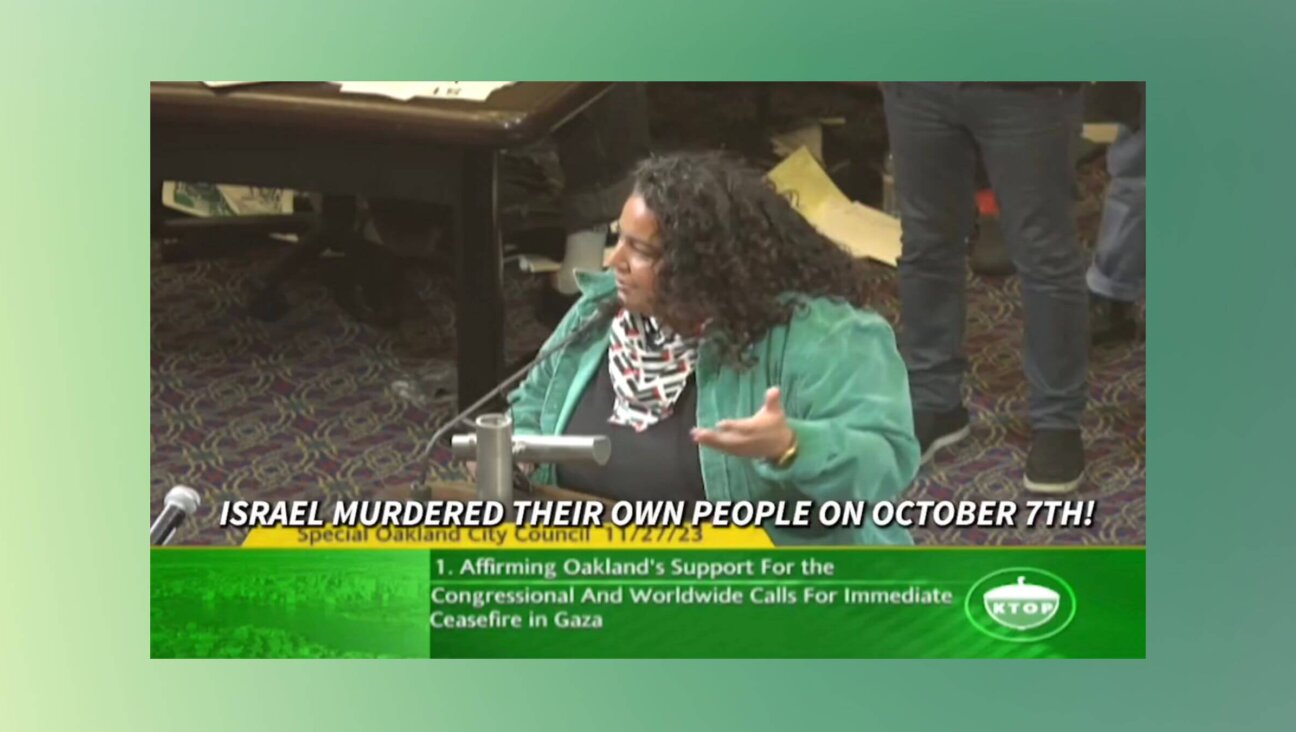Many universities fumbled reactions to Hamas’ attack. Here’s how Dartmouth got it right
Two forums organized by professors from across the Middle East pushed thoughtful dialogue instead of protest
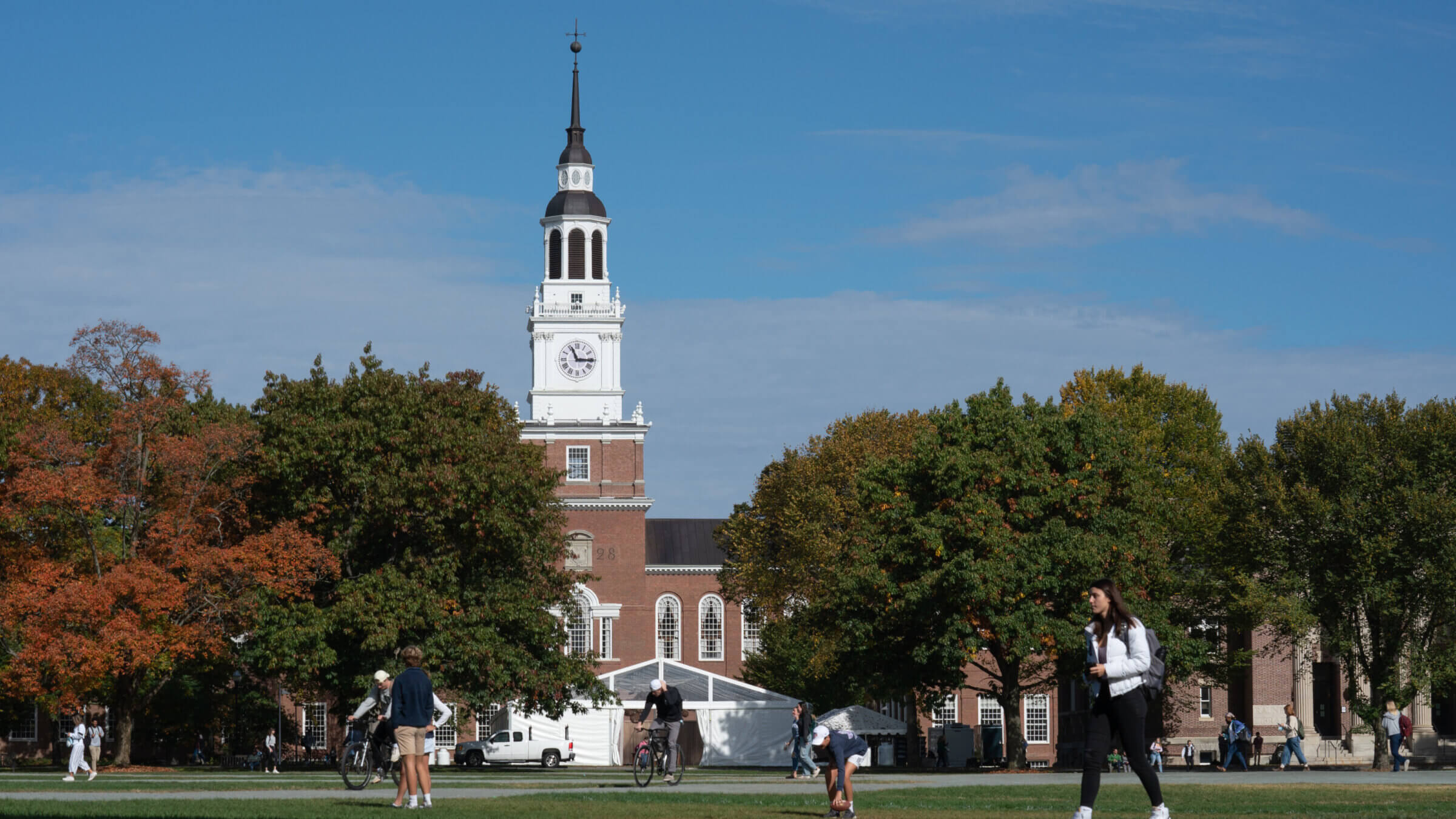
Immediately following the Oct. 7 Hamas attack on Israel, Dartmouth College offered students public forums with scholars on the conflict. Photo by Photographer: Bing Guan/Bloomberg via Getty Images
It shouldn’t be noteworthy that Dartmouth, an Ivy League university, responded to an international crisis by engaging in education. But, well, it is.
Consider what was happening at the other Ivies. At Harvard, 34 student groups signed a public letter holding Israel solely to blame for the Oct. 7 terrorist attack during which Hamas killed more than 1,400 people, and took more than 200 hostage.
At Yale, one professor called Israel a “murderous, genocidal settler state.” At Cornell, another called the Hamas attacks “exhilarating,” apologizing only after a public outcry. One Columbia professor called the attacks “awesome” and “astounding.”
No wonder elite institutions of higher learning faced a backlash from alumni, media and donors for encouraging knee-jerk reactions that reeked of ignorance.
Hence, the extraordinary fact of Dartmouth’s radical, out-of-the-box approach to an emotional, complex issue, spearheaded by a group of Middle Eastern academics from diverse national and religious backgrounds: teaching.
On Oct. 9 — the Monday following the shocking Hamas attack — Dartmouth announced it would hold two public forums on the Israeli-Palestinian crisis, featuring professors from Israel, Lebanon and Egypt.
“Like many of you, I watched with growing horror the Hamas attack on Israel this weekend, the escalating violence, and the devastating loss of life, especially among civilians,” wrote Sian Leah Beilock, the university’s president, in a letter to the campus community urging students and faculty to attend the forums.
The forums featured Ezzedine Fishere, an Egyptian novelist, diplomat and academic who was a leader during Egypt’s Tahrir Square protests; Susannah Heschel, chair of the Jewish studies department; Jonathan Smolin, a Middle Eastern studies professor who teaches Arabic literature; Bernard Avishai, an Israeli scholar and New Yorker contributor who has been openly critical of Israel’s rightward turn; and Tarek El-Ariss, a Lebanese-born expert on modernity in the Arab world who chairs Middle Eastern studies.
The professors came up with the idea for the forum in the hours after the attack.
“We have friendship, and we have trust,” Heschel said in a phone interview. “And that meant that when this happened, we were all upset. And we talked with each other on the phone, and we decided we have to do something.”
The group reserved a small classroom, assuming maybe 20 people would show up. More than 100 did, requiring an overflow room, with an additional 600 watching a video feed.
The second forum drew 300 people to Filene Auditorium, with over 5,000 viewers on YouTube.
At the first forum, a student suggested that Hamas’ attack and Israel’s retaliation demanded moral outrage, not academic discussion.
“We can do two things at the same time,” Fishere said, according to a report on Dartmouth’s administration-run news site. “We can be morally outraged at brutality. And we can try to understand what leads to it, where it comes from, what explains it, and so on. Those are not mutually exclusive things.
“And in a college, that’s what we’re doing. This is why we study.”
At the second forum, a student said he felt intimidated voicing his opinions on the conflict after Harvard alumni threatened not to hire students who signed the anti-Israel letter.
Smolin said his job was to protect students’ right to open debate and expression.
“It’s unacceptable if there’s any blockage to that,” he said. “And if there is, email me.”
At the second forum, Heschel made a plea for community and understanding, and Fishere jumped in to second her.
“I understand that emotions are high,” he said. “But I want you to ask yourself, especially students, when you talk about the topic, what are you trying to achieve?”
Fishere said students have a range of ways to react to the conflict. They can advocate for their side; they can find someone to blame; or they can try to understand.
“But the one that I think we have an advantage in, as a college,” he said, “is to try to understand what is going on, which means understand the complexity, which is often unpleasant because we come across things that we don’t like. But that’s, in fact as students, as learners, that’s our job here.”
Meanwhile, the university didn’t shut down campus protests, including an event organized by the Dartmouth Palestine Solidarity Coalition protesting Israel’s retaliatory strikes, which had by Tuesday, according to the Hamas-run Ministry of Health, killed some 4,300 Gazans.
“We mourn with all those on this campus for the lives lost in the most recent war between Gaza and Israel,” the group said in a joint statement with other campus groups.
In the scheme of the unfolding tragedy, the reaction on college campuses may seem like a sideshow, capturing gobs of media attention when far more important things — hostage lives, a pending ground invasion — are at stake.
But if these campuses are preparing the next generation of leaders to face complex, nuanced and emotionally fraught crises, it’s nice to know at least one of them appears to know what it’s doing.
I’m a Dartmouth alumnus — though hardly an active, rah-rah one — and I’ve always sensed that the university, a small school far from any major urban centers, leverages its relative isolation to nurture a deep sense of community among its students.
That extends to faculty too.
“I think we as colleagues are very interested in nuance and in our scholarship, so we are people who are not looking to use scholarship to make political statements. We’re not here to give them political rants,” said Heschel. “We’re here to teach.”
It’s a small school, maybe. But that turns out to be a big idea.
A message from our Publisher & CEO Rachel Fishman Feddersen

I hope you appreciated this article. Before you go, I’d like to ask you to please support the Forward’s award-winning, nonprofit journalism so that we can be prepared for whatever news 2025 brings.
At a time when other newsrooms are closing or cutting back, the Forward has removed its paywall and invested additional resources to report on the ground from Israel and around the U.S. on the impact of the war, rising antisemitism and polarized discourse.
Readers like you make it all possible. Support our work by becoming a Forward Member and connect with our journalism and your community.
— Rachel Fishman Feddersen, Publisher and CEO







